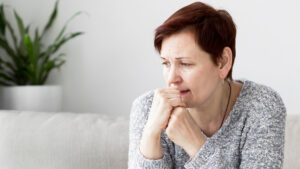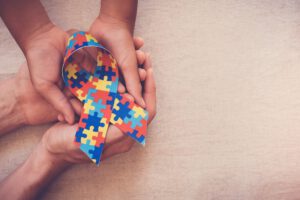
Homosexuality and the “coming out” process

In recent years, many gains have been made in over 70 countries around the globe, with respect to sexual orientation rights, which are increasingly safeguarded under regulations, laws, and constitutions. There is a global tendency towards the decriminalization of consensual same-sex acts, and “rainbow families” are increasingly recognized in numerous jurisdictions. This recognition may include protection against various forms of discrimination; the recognition of same-sex marriage; the right to use assisted reproduction, such as surrogacy; inheritance law and pension rights for gay spouses.
At the same time, this hard-won progress has been met with serious resistance, manifest in the form of polarizing trends that place LGBTQI people at risk, sometimes for their very lives . Moreover, some Asian and African countries lag behind most of Europe and North America. In the West Bank, the Palestinian Authority prohibited events supporting gender and sexual diversity “on the basis that they go against ‘traditional Palestinian values’, and accused the [local LGBT] organisation of being ‘foreign agents’.” (ILGA, 2019, p. 14, my brackets).
In countries that do not criminalize or demonize homosexuality, society nonetheless offers a somewhat confusing mixture of pride and prejudice: politically correct acceptance (expressed in various laws affirming equal rights, the increasing acceptance of Gay Pride and its annual celebration, pre-Corona), with many individuals professing heartfelt acceptance and respect for the other, alongside a counter image of prejudice and homophobia on the part of other individuals, religious figures and fringe groups.
The mental health community has also made significant gains in their outlook upon sexual orientation and related issues, and come to view homosexuality as part of normal human sexuality. So-called “conversion therapies” have been out-lawed by both the American Psychological Association and the American Psychiatric Association. Several but not all states have officially outlawed conversion therapy, and various countries (e.g., Canada, France, Germany) will soon outlaw this unethical, not to say criminal practice.
Unfortunately, although President Rivlin publicly denounced this practice, to the best of my knowledge, it has not yet been formally outlawed in Israel.
Whereas precise statistics are not available, homosexuals constitute a minority, vis-a-vis the general population. Some belong to more than one minority, and may be subject to discrimination on various fronts, including gender and ethnicity, as well as sexual orientation.
Some people become aware of feeling same-sex attraction at a relatively early age; others may first attempt to live a heterosexual life, before realizing they want something else. Although the hetero-sexual world seems to have more trouble accepting gay men than lesbian women, negative and disdaining attitudes towards women who love women can also be quite unsettling and difficult to cope with. It may be especially difficult it you are a black, Hispanic, Asian or African woman.
With regard to society’s attitude towards gay men, it has been argued that homo-phobia stems from “a hatred of what is perceived and labeled as feminine in men.” (Isay, 2009, p. 126). According to Isay, a gay psychoanalyst, this state of affairs can occur in a society that discriminates against women in general. He suggests that if “the same value is placed on sensitivity, compassion, nurturing, and loving as on aggressivity, competition, and productivity … it might enable both heterosexual and gay men to perceive that men who love other men may also be masculine” (ibid), as opposed to manifesting feminine character traits or be-ing viewed as “sissies.”
Other authors have come up with other explanations for homophobia, but this important topic is beyond the scope of the current article, and merits a separate discussion.
Whatever the reasons, often multi-determined, there is still much prejudice towards the LGBTQI community; some of it may stem from the person’s own family or circle of friends, who are influenced by (and influence) the society they live in. Prejudice and discrimination stem from a basic fear of that which is different from us i.e., the strange, the stranger. This very fear is also at the basis of racial discrimination and xenophobia, of the behavior of right wing fanatics threatened by anything that is not-them, who periodically spiral out of control, lashing out indiscriminately at whatever unfortunate member of the LGBTQI community they may come across or arbitrarily decide is gay.
This state of affairs requires a commitment toward continued psycho-education of the general population and its politicians e.g., via responsible professionals in the area of mental health; school programs promoting sex education, tolerance and diversity; youth movements aligned with pluralism; as well as from artists and the media in general. Moreover, when famous or well-known figures publicly advocate for recognition of gay rights and/or model being out in the world as a homosexual, this also seems to have a beneficial effect on others
The coming out process
Before coming out to others, one must first come out to oneself, admit to oneself that, “Yes, I am attracted to same-sex individuals” (whether emotionally, sexual-ly and/or romantically), and, “Yes, I fantasize about this.”
It is not necessary to fulfill or act upon the homosexual fantasy to identify as gay. This acknowledgement that we are attracted to someone of the same sex, and thus differ from the majority of the people we know, may entail battling our own fears about what it means to be gay, and for us to be gay. We may be open towards someone else’s sexual orientation, but ambivalent about our own. It is necessary to grapple and come to terms with with one’s internalized homopho-bia. Feelings of attraction to a same-sex partner may evoke negative cognitions, such as, “What is wrong with me?” or, “I am not okay.” These cognitions may be accompanied by feelings and bodily sensations of shame and guilt (“How can I do this to my parents … my father would kill me if he knew.”)
When we are able to admit to ourselves that we differ from those around us with respect to our sexual orientation, it takes guts to share this sensitive information with others, for we risk being judged, ridiculed and/or discriminated against, whether at home or at work. Thus, we may wish to guage the person’s potential reaction, perhaps test them in some small way, to see how tolerant they are of the LGBTQI community, before taking them into our confidence.
It may thus be very difficult for a homosexual person, whether gay or lesbian, to “come out” to family members, such as parents, and identify as gay or lesbian. For transgenders this process is even harder, and this topic should probably be dealt with separately. A coming out process may be preceded by anxiety, shame, fear, a need for secrecy. Sometimes, low self-esteem and depressive feelings also be present, especially if individuals put themselves down for being different.
In some communities or families, coming out may be met lovingly, evoking pride and admiration in the individual’s ability to stand tall and be himself.
But more often than not, the negative reactions encountered may culminate in a sense of being rejected as a person. This may evoke a myriad of feelings, includ-ing shame, guilt, anger, or even hatred.
Self-acceptance requires a lot of internal work and a healthy dose of self-compassion.
It is important to realize that coming out is not a one shot affair. Rather, it is a cyclical process that recurs during one’s lifespan, as there are always new people one has to consider coming out to, for example, a new coworker, physician, neighbor, or friend. Although for most, the first time is probably the hardest, it may still be a difficult decision for years to come, when the necessity (or wish) may come up. Common questions that may surface include: will X be angry? Sad? Insulting? Will I be safe? Rejected? Lose my job?
It is also helpful to have someone we trust accompany us on this journey of self-affirmation, someone with whom we can share at least some of what we feel, knowing they will not to be critical or judgmental, will not be put off or disgusted with us, will not reject us. Each of us has a deep need to be acknowleged and loved exactly as we are, with our gayness. Sometimes that someone who is there for us will be a close friend, a partner or perhaps a trusted family member. Some-times, it may be a psychotherapist.
People often seek psychotherapy to gain emotional support during such a trying time, a time when they strive to come to terms with the otherness they sense in themselves, to make sense of what they feel and what to do about it.
It is important to be able to share such an important aspect of oneself with at least one “significant other.” Facing the world after we has come to terms with who we are and having been accepted by at least one person we value, will be much more rewarding than facing it all alone.
Coming out to one’s parents - to tell or not to tell. Some considerations to keep in mind
According to Dr. Michael LaSala, a gay social worker who researched the coming out of young people in the United States, and summarized his research findings in a book about coming out, the average age for coming out is 17, with some starting as early as 14.
He points out that gay adolescents who have a strong relationship with their par-ents and are able to come out to them with regard to their sexual orientation, have much to gain. Being accepted by their parents and loved exactly as they are (having a secure attachment), strengthens their self esteem and self-worth. There is less need for recourse to substance abuse or risk-taking behavior.
However, despite the increasing tolerance for gay and lesbian (as well as bisexual and transgender) people in many circles, some parents will nonetheless behave in a rejecting manner, at least when it comes to their own kid/s, and may even ban-ish them from the family home, cease financial support or become downright vio-lent. Others (e.g., in some religious families) may feel as if, and go so far as to proclaim that their child is dead to them. These emotionally-rejecting and some-times downright abusive reactions are hard to tolerate, especially for adolescents and young adults living at home, and still dependent on their parent.
Thus, LaSala cautions that in some cases, it may be best for young people not to come out to one’s parents. There is always time to do so later on in life, when one is less dependent on one’ parents and family.
Considerations re: when NOT to tell
LaSala provides a few guidelines to consider when not to tell, and stresses the importance of having a backup plan, in case things go south. These include:
1. Your own gut or felt sense, that is saying, “No, not now.” As mentioned, chances are there will be a better time in the future, to share this aspect of yourself with your parents, perhaps when you have a partner and feel less alone with it all—it doesn’t necessarily have to be now, if it doesn’t feel right and you are scared of their reaction. Respect that sense of foreboding, of fear-ful apprehension.
(b) A family member has gone so far as to threaten to hurt you, should they find out you’re gay.
3. It would be devastating for you, were your parents to respond badly. Some parents may respond negatively without thinking things through, say things they may later regret and find hard to take back. It takes a very tough skin to tolerate these knee jerk reactions, in part expressions of concern and worry.
4. You depend on your family e.g., physically and financially. It may be best to wait until you complete your college studies and are financially independent.
5. There have been warning signals to heed:
(a) Your parents have made derogatory comments regarding the homosexual community, for example, in response to a TV program depicting gays, Gay Pride, etc.
(b) A family member has threatened to hurt you, should they find out you’re gay.
Things to do before you tell your parents
If the above considerations do not apply, and you have decided to come out to your parents, there are a few things to attend to first.
1. Support System: Make sure you have a support system in place, for exam-ple, supportive friends, a trusted family member, a teacher or school counse-lor, your physician, a therapist. Tell them what you are planning, and make sure you can stay with a friend if you need a place to crash until things quiet-en down. It is important to know you can rely on having “your people” be there for you, willing to lend a sympathetic ear.
It is helpful to have a partner with you on this journey, and if you have one and want your parents to get to know him or her, that might be a factor in your decision to tell them.
2. Resources: Find out what resources there are for your parents, such as a support group for parents of gay and lesbian children. A group called “Tehi-la” offers such support (see down). Parents can arrange to meet for coffee on a 1:1 basis and share their experiences with a more seasoned parent of an LGBTQI child, one who is comfortable with their child’s orientation.
3. Faith: Another important resource is faith. Trust that no matter what happens, you can land on your own two feet, but be prepared to seek professional help, especially if tempted to behave in ways that deep down, you know can and probably will be detrimental to your overall health and well-being. A sign that professional help is indicated is feeling alienated or depressed and/or harboring dark thoughts, such as suicidal ideation. There are free clinics in the community, run by either Kupat Cholim or the Ministry of Health. Another option is the clinic run by the Aguda (see down). There is also a hotline run by the Aguda (03-620-5591). See their website for more information.
4. Plan B: Come up with a “worst case scenario” backup plan, should you be banished from the parental home and/or have your school tuition payments interrupted. Ideally, this should include lodgings (e.g., with a relative or a friend’s family, a hostel for gay youth at risk) and money to live on.
A few considerations re: when to tell your parents
Whatever one does in life, timing is always important, and one should learn to attend to it—this comes with experience. Take the time to plan your coming out process carefully—after all, coming out is an important step in your personal de-velopment and in your relationship with your parents, and you only get to do it once—with them.
1. Pick a moment when you are feeling good, in general as well as in the rela-tionship with your parents. Make sure you are all relaxed, relatively content. If someone is stressed out, upset, or angry—this is not the right time. Re-member, this is your moment, so don’t link it with a family event, such as a holiday meal or celebration.
2. LaSala recommends letting your parents know you value what you have with them, that you wish to have and maintain an open, loving and emotionally close relationship with them—one where you can share your feelings and bring up things that you care about and are important to you. Reassure them that you are at a good place in your life, and that with their support, love and acceptance, it will be even better.
3. Tell them you know it takes time to digest this news, and that this is totally to be expected. After all, it took you time, too. Let them know that there are numerous resources available, such as meeting other parents who’ve gone through something similar with their own kids, perhaps joining a support group for parents, attending a lecture or reading a relevant book. There are also many YouTube videos of coming out stories, including to one’s parents. Neither you nor they are alone with it all. Numerous others have dealt with these issues, and perhaps it will even strengthen the relationship, and the resilience of the family as a whole.
Resources
Website: HaAguda https://www.lgbt.org.il/clinic
Website: Tehila https://tehila.org.il
Website: Beit Dror https://bethdror.org
Website: Parents, Families and Friends of Lesbians and Gays (PFLAG) www.pflag.org
Article: Sexual orientation, gender identity, gender expression and transgender people.
Book: Richard Isay. (2009). Being Homosexual. Gay men and their development. New York: Vintage.
1. ILGA, December 2019
2. https://bit.ly/3iNmQIZ
3. LaSala, M. (2010). Coming Out, Coming Home. Helping Families Adjust to a Gay or Lesbian Child. New York: Columbia University Press.









